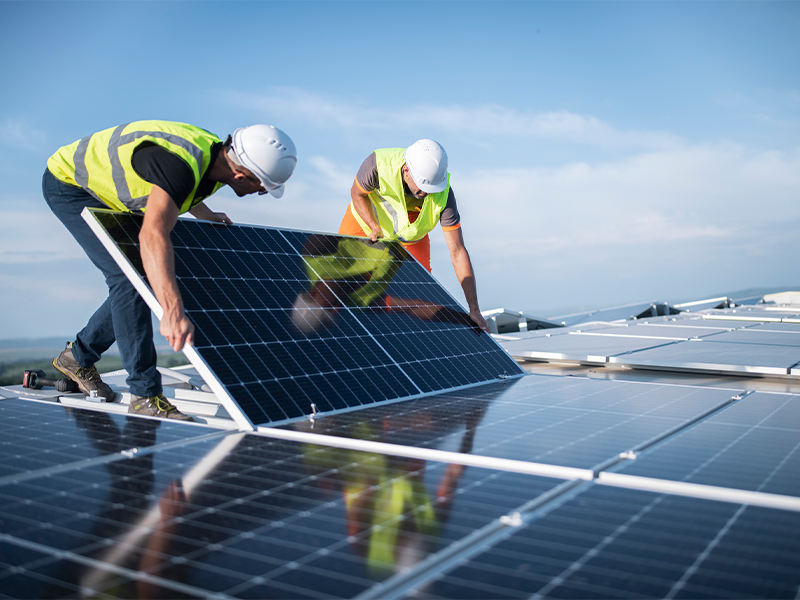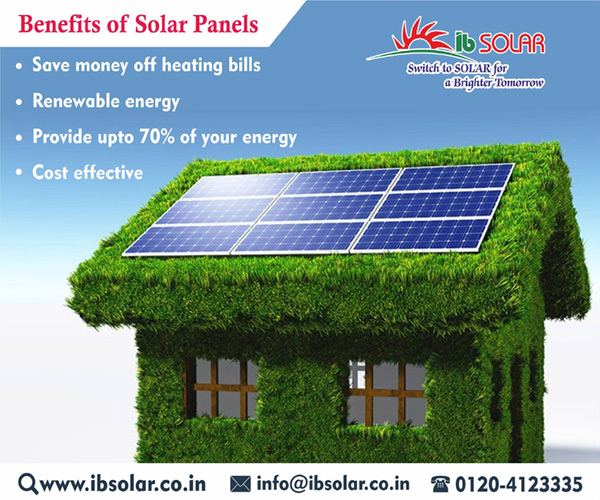Simply Solar Illinois – Top-Quality Solar Panels for Any Energy Needs
Just How Solar Power Can Help You Save Cash and Reduce Your Carbon Impact
The integration of solar power into your power portfolio provides a compelling chance for both economic cost savings and ecological stewardship. By taking advantage of the sunlight's power, property owners can considerably lower their regular monthly energy costs while also securing against the unpredictability of future energy expenses. The transition to solar adds to a significant decline in carbon emissions, lining up personal money with broader eco-friendly goals. As various federal government incentives appear, the inquiry arises: how can one efficiently navigate the first financial investments and continuous advantages of solar technology to make the most of both financial and environmental gains?
Understanding Solar Energy Savings
While the shift to solar power usually entails a first financial investment, understanding solar power savings is essential for property owners and companies alike. Solar power systems can significantly minimize power costs by taking advantage of the sunlight's energy, equating into significant lasting monetary benefits.
Furthermore, solar power systems might get approved for numerous monetary rewards, including tax debts and refunds, better boosting their cost-effectiveness. The accessibility of internet metering enables customers to offer excess power back to the grid, developing an added income stream. These elements add to the general savings related to solar power.

In addition to guide monetary cost savings, solar power offers the included advantage of enhancing residential property value. Residences geared up with solar panels are typically much more appealing to purchasers, as they assure lower energy expenses - Simply Solar Illinois. Understanding these components is essential for anyone thinking about solar power, as it highlights not just the possible monetary gains, but likewise the wider environmental and economic benefits of embracing renewable resource remedies
Preliminary Prices vs. Long-Term Advantages
When assessing solar power, it is essential to weigh the preliminary prices against the long-term advantages. The ahead of time financial investment for solar panels, installation, and related tools can be considerable, frequently varying from $15,000 to $30,000, depending upon the system size and home energy demands. This first expense may deter some property owners; nonetheless, it is essential to consider the prospective cost savings gradually.
As soon as set up, solar energy systems can considerably reduce or perhaps get rid of regular monthly power costs, resulting in substantial long-lasting economic advantages. Research studies show that house owners can conserve anywhere from $10,000 to $30,000 over the lifespan of their solar system, generally 25 years. In addition, numerous states supply motivations, tax obligation credit scores, and discounts that can offset initial prices, making solar much more accessible.

Minimizing Your Carbon Footprint
Reducing your carbon impact is an essential factor to consider in today's environmentally mindful culture, and embracing solar energy is among one of the most efficient strategies to accomplish this goal. Solar power is a clean, renewable energy that considerably diminishes dependence on nonrenewable fuel sources, which are significant factors to greenhouse gas exhausts.

Moreover, the extensive fostering of solar innovation urges the advancement of environment-friendly tasks and sustains developments in power storage and efficiency. The more people and companies buy solar power, the better the cumulative decrease in carbon emissions, promoting a cleaner environment for future generations.
Government Motivations and Discounts
Embracing solar energy not only benefits the atmosphere yet can additionally news cause significant monetary cost savings, especially with the availability of federal government motivations and rebates. Different government, state, and local programs are created to encourage home owners and organizations to purchase solar power systems, making the shift extra budget-friendly.
Among one of the most prominent rewards is the Federal Financial Investment Tax Obligation Credit History (ITC), which allows planetary system proprietors to subtract a visit here substantial percentage of the installation costs from their federal tax obligations. This motivation has actually been pivotal in decreasing the in advance costs related to solar power systems. Additionally, many states provide their own tax credit scores, grants, and refunds that can better boost financial savings.
In addition, some neighborhood federal governments give real estate tax exemptions for solar setups, guaranteeing that property owners do not deal with enhanced residential or commercial property taxes as a result of their eco-friendly power investments. Utility firms might likewise provide incentives, including internet metering and feed-in tolls, which enable solar power customers to market excess power back to the grid.
Selecting the Right Solar System
Picking the ideal solar system is critical for taking full advantage of energy efficiency and economic benefits. The choice rests on a number of aspects, including power needs, budget, and readily available space. House owners must begin by evaluating their electrical power intake to figure out the system size needed for ideal performance.
Following, consider the various kinds of solar modern technologies offered. Simply Solar Illinois. Photovoltaic (PV) panels are one of the most typical, transforming sunshine directly into power, while solar thermal systems focus on home heating water. Each type has unique benefits depending on specific requirements
Budget plan factors to consider are additionally critical. his explanation Preliminary installation prices can vary substantially, so it's important to compare quotes from numerous suppliers and discover funding options. Government incentives and refunds can further minimize the economic burden, making planetary systems more easily accessible.
Conclusion
In recap, solar energy offers a practical option for attaining substantial price savings while all at once minimizing carbon emissions. The preliminary investment, though considerable, yields significant long-lasting monetary advantages, with potential financial savings varying from $10,000 to $30,000 over 25 years. The environmental advantages of solar energy contribute to sustainable techniques crucial for combating climate change. Federal government motivations boost the expediency of solar modern technology fostering, motivating a shift towards a cleaner, much more economically effective power source.